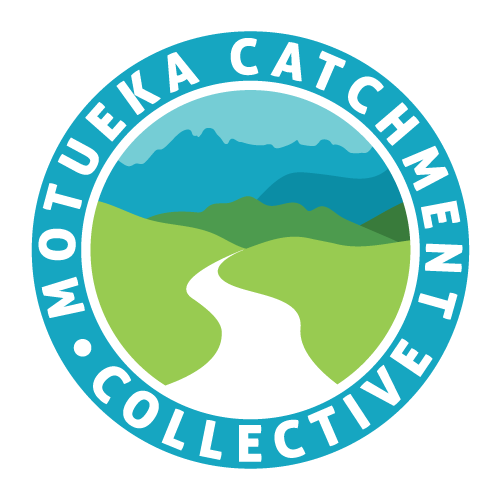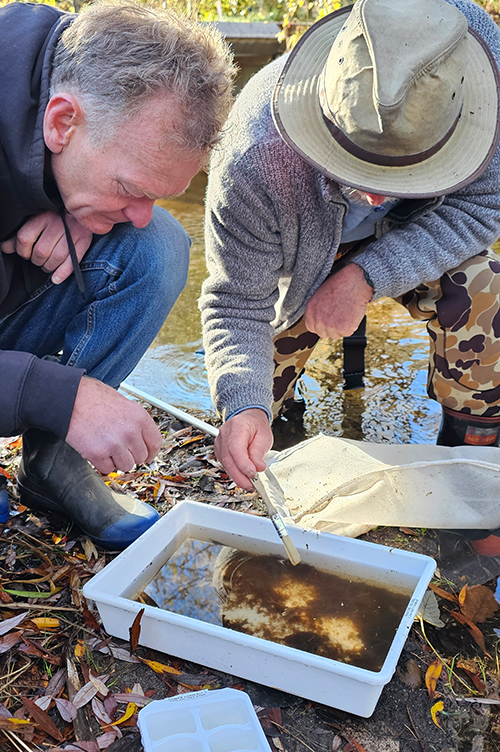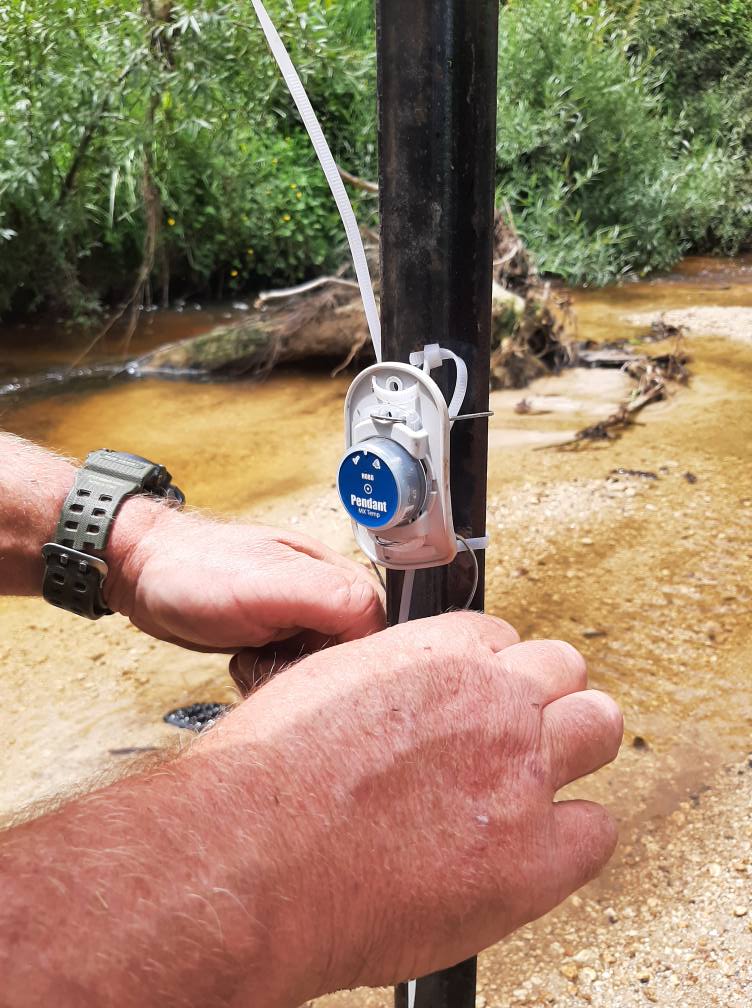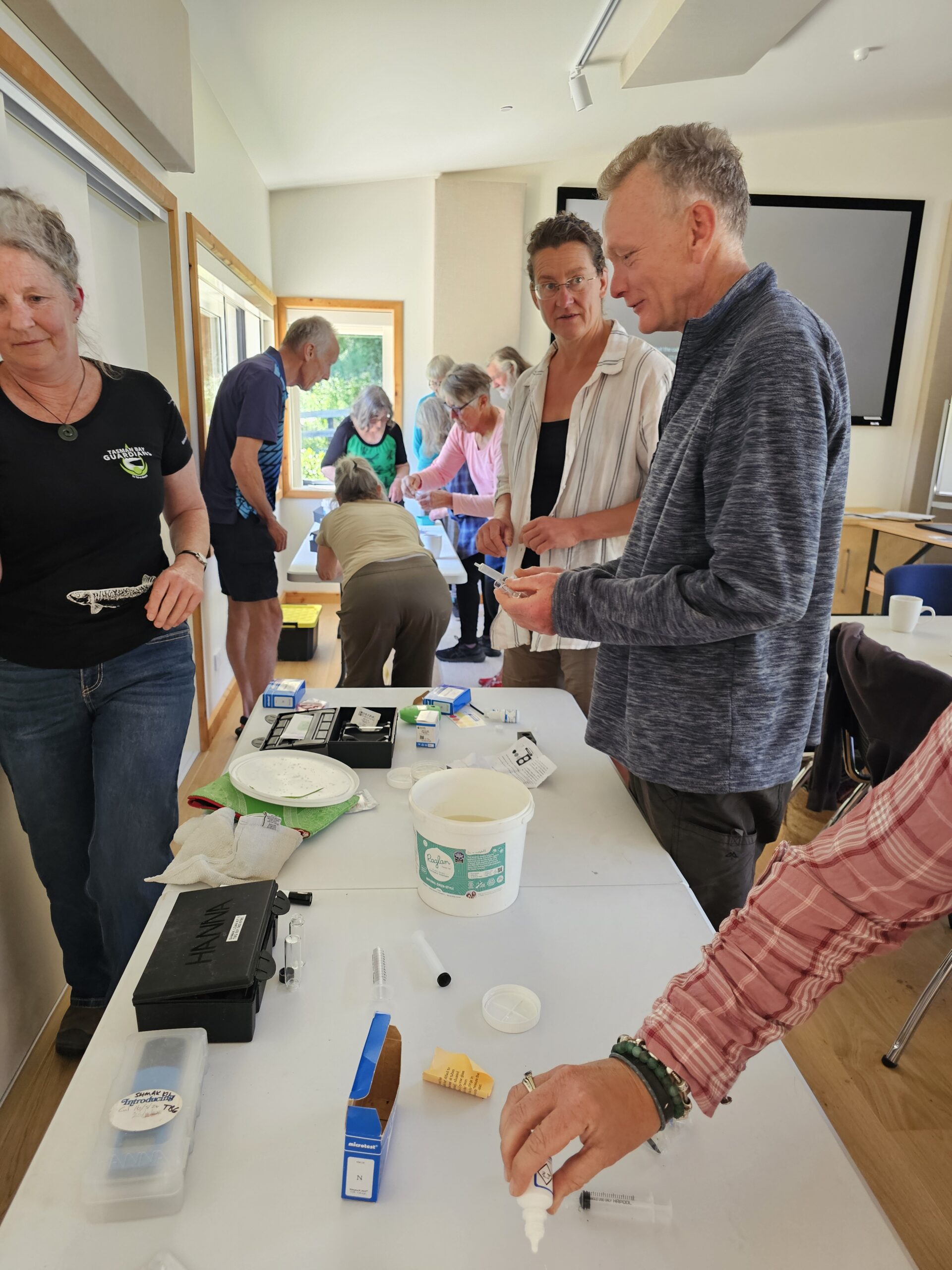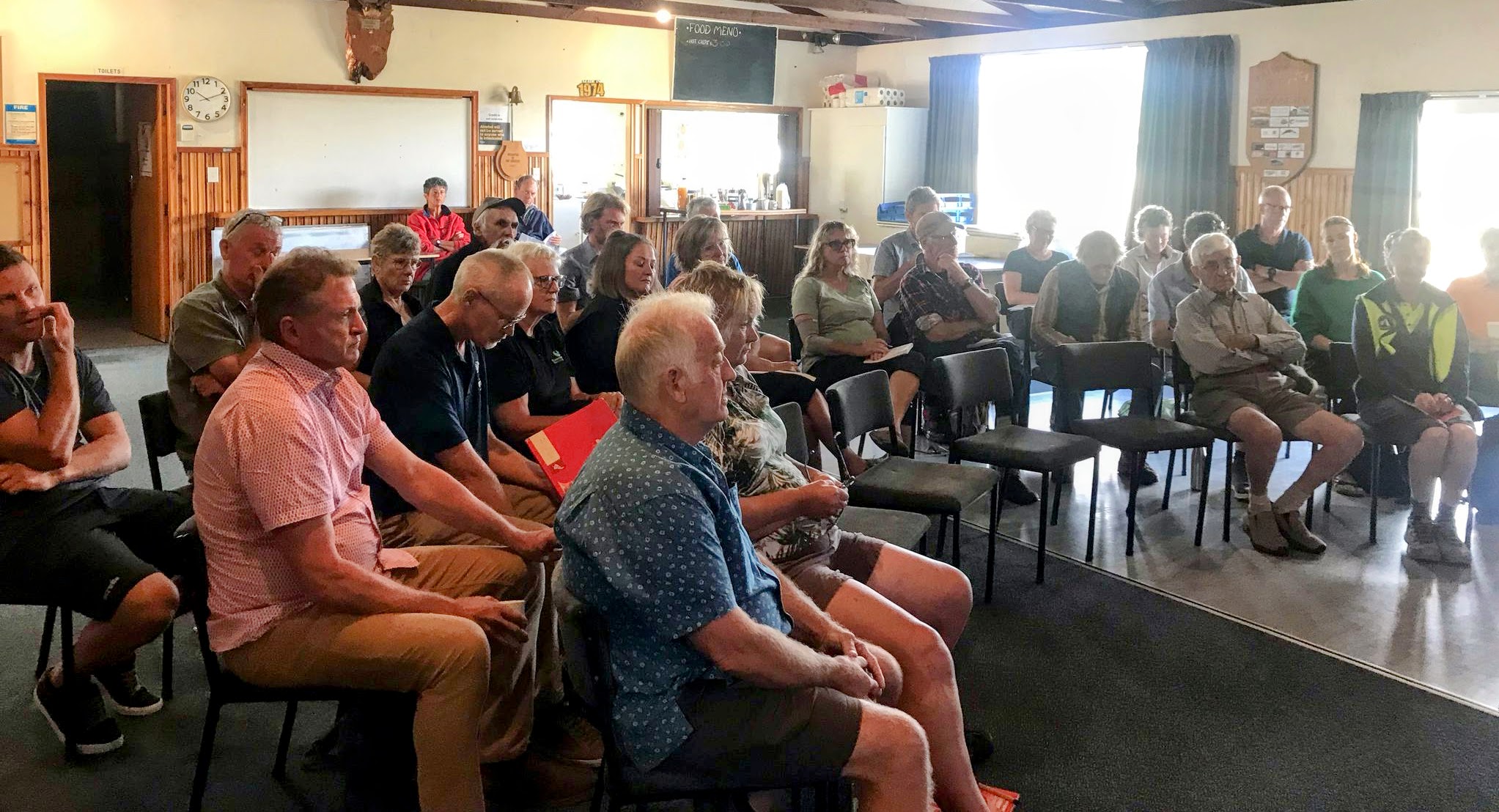Last week, the Tasman Bay Guardians team installed nine HOBO temperature loggers in tributaries already being monitored by Community‑Based...
- Home
- The Collective
- News
- Events
- The Catchment
- About the Motueka Catchment
- Our whaitua (catchment)
- Our hāpori (communities)
- Our catchment – then and now
- Our whenua (land) today
- Our awa (rivers and streams)
- Wetlands and lakes
- Groundwater
- Coastal receiving environments
- How healthy are our waterways?
- Freshwater ecosysystems
- River Health
- Cultural Health
- Other issues in the catchment
- More information
- Resources
- Contact us
Ka ora te awa, ka ora te tangata – when the river is well, people are well
- Home
- The Collective
- News
- Events
- The Catchment
- About the Motueka Catchment
- Our whaitua (catchment)
- Our hāpori (communities)
- Our catchment – then and now
- Our whenua (land) today
- Our awa (rivers and streams)
- Wetlands and lakes
- Groundwater
- Coastal receiving environments
- How healthy are our waterways?
- Freshwater ecosysystems
- River Health
- Cultural Health
- Other issues in the catchment
- More information
- Resources
- Contact us
